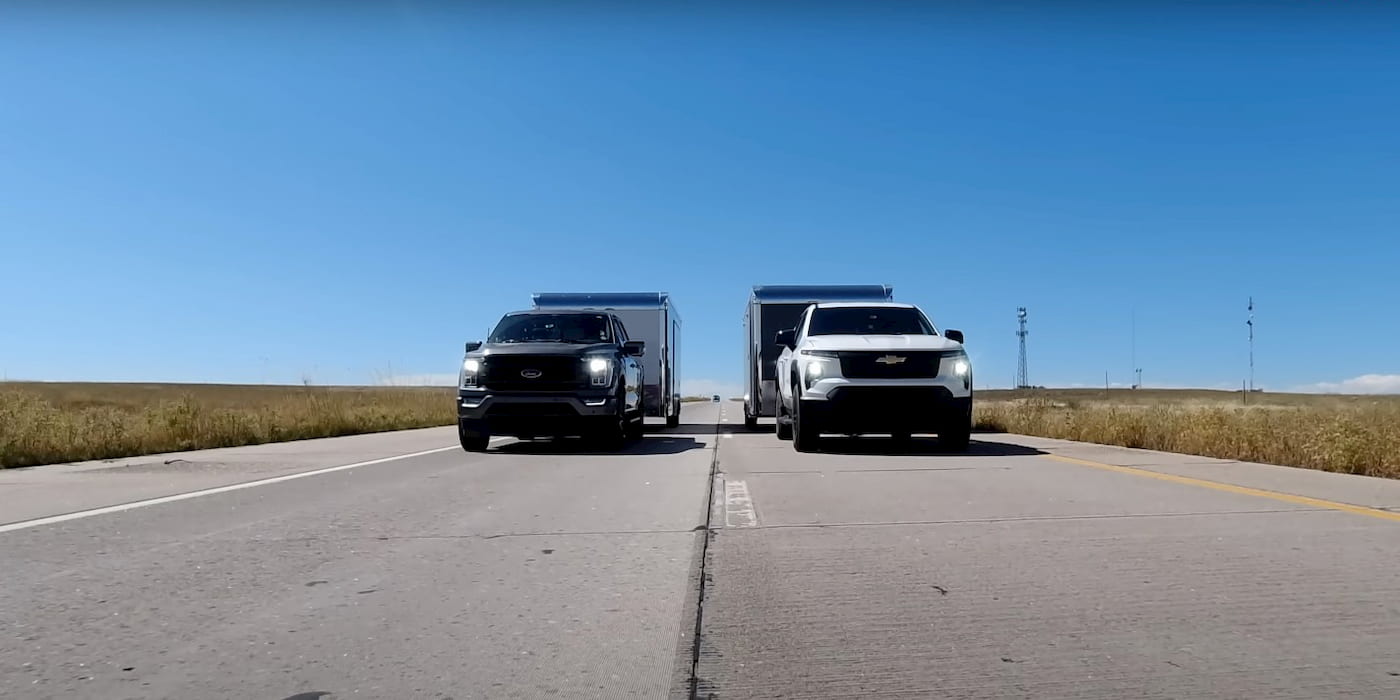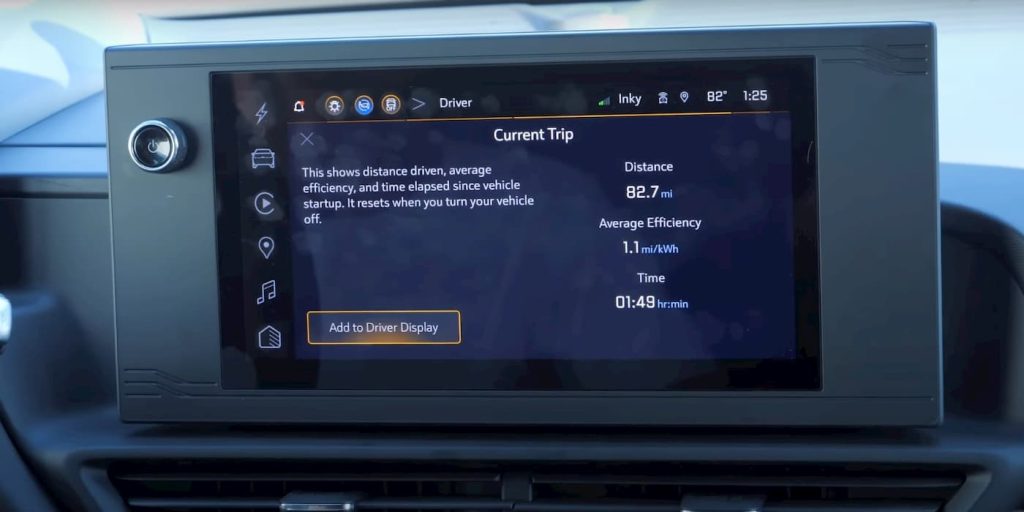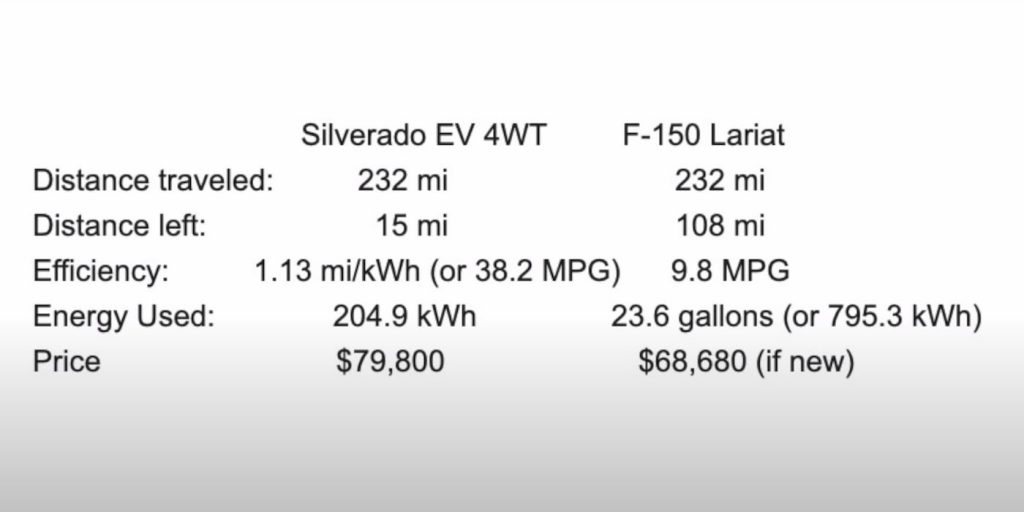
The new Chevy Silverado EV is out to “redefine the boundaries” of full-size pickups with impressive power and performance. But how does it stack up against Ford’s classic gas-powered F-150?
Towing is often considered one of the most critical features of a truck. To ensure its full-size electric pickup is up to the task, GM packed it with a massive battery and dual electric motors with standard all-wheel-drive.
Powered by GM’s Ultium platform (scalable up to 200 kWh), the Silverado EV provides up to 754 hp and 785 lb-ft of torque. Chevy claims the electric pickup has up to 10,000 pounds of max towing power.
Although it uses the same platform as the GMC Hummer EV, the Silverado EV is designed as more of a traditional pickup.
As such, the Silverado has much better aerodynamics, with a .331 drag coefficient compared to over .5 for the electric Hummer. The Silverado EV is more in line with the Rivian R1T at around .3 and Ford’s F-150 Lightning at about .40 to .45.
With the enhancements, GM claims the Silverado EV will have up to 450 miles of range, surpassing the Lightning (320 miles).
GM’s new electric pickup is fully stacked with impressive range, towing, and power. So, how does it stack up against a gas-powered model?

Chevy Silverado EV towing endurance test video
To put it up to the test, The Fast Lane Truck put the Chevy Silverado EV up against Ford’s F-150 in a gas vs. electric towing test. The trucks underwent a real-world towing endurance challenge with 6,500-pound loaded identical trailers. See how it went down in the video below.
The testers began by topping off the vehicles and enabling towing mode on both tucks. The electric truck initially shows a 475-mile range but readjusts throughout the trip for carrying the trailer.
For the test, the team used an F-150 EcoBoost (Lariat trim) with a twin-turbo V6. The crew cab 4×4 short bed is one of the most common current half-ton gas pickups on the market.
It’s a similar setup to the Silverado EV, but the Silverado’s 515 hp and 600 lb-ft of torque exceed the F-150’s 400 hp and 500 lb-ft of torque.
The team took the trucks on an endurance test through a common Colorado highway to test the range in real life. Meanwhile, the trailers are all-aluminum “race car haulers” weighing around 6,500 pounds loaded.
The Silverado’s powerful electric powertrain and weight enable a smooth ride, even at higher speeds, with a trailer attached.

Top comment by Heise Peter
"However, they only filled the EV enough to get them back, where it only costs $0.17/kWh to charge. At that rate, it would be less than $20 to charge it up."
No 205*0.17=35$
After 82 miles, the Silverado EV read that it had around 1.1 mi/kWh average efficiency with 68% of the battery remaining (roughly one-third). At the second stop after 116 miles, the Silverado EV still had 52% charge remaining.
In the end, the team took the trucks 232 miles. To fill up the F-150, it cost them $98. The Electrify America they stopped at charged $0.48/kWh, which would also amount to $98.

However, they only filled the EV enough to get them back, where it only costs $0.17/kWh to charge. At that rate, it would be less than $20 to charge it up.
The biggest complaint of the towing test regarding the Chevy Silverado EV was the lack of pull-through chargers. Other than that, the Silverado EV offers an impressive towing-capable electric truck.
FTC: We use income earning auto affiliate links. More.



Comments